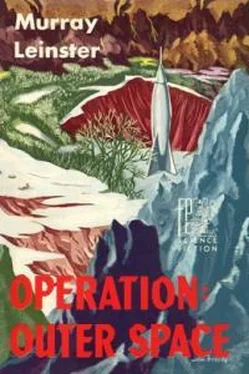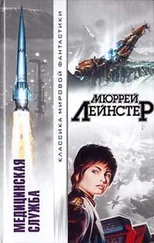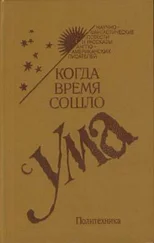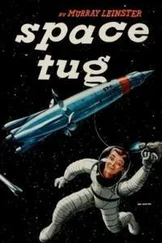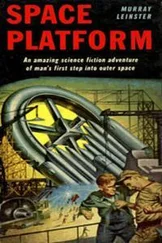Dabney, of course, had tasted the limelight. All the world considered him the greatest scientist of all time—except, of course, the people who knew something about science. But the first actual voyagers in space had become immediately greater heroes than himself. It was intolerable to Dabney to be restricted to taking bows on programs in which they starred. So he wrote a star part for himself.
The bearded biologist who followed him was to have lectured on the pictures and reports forwarded to him beforehand. But he could not ignore so promising a lead to show how much he knew. So he lectured authoritatively on the danger of extra–terrestrial disease–producing organisms being introduced on Earth. He painted a lurid picture, quoting from the history of pre–sanitation epidemics. He wound up with a specific prophecy of something like the Black Death of the middle ages as lurking among the stars to decimate humanity. He was a victim of the well–known authority–trauma which affects some people on television when they think millions of other people are listening to them. They depart madly from their scripts to try to say something startling enough to justify all the attention they're getting.
The broadcast ended with a sentimental live commercial in which a dazzlingly beautiful girl melted into the arms of the worthy young man she had previously scorned. She found him irresistible when she noticed that he was wearing a suit she instantly knew by its quality could only come from Harvey's.
On the planet of glaciers and volcanoes, Holden fumed.
"Dammit!" he protested. "They talk like we're lepers! Like if we ever come back we'll be carriers of some monstrous disease that will wipe out the human race! As a matter of fact, we're no more likely to catch an extra–terrestrial disease than to catch wry–neck from sick chickens!"
"That broadcast's nothing to worry about," said Cochrane.
"But it is!" insisted Holden. "Dabney and that fool biologist presented space–travel as a reason for panic! They could have every human being on Earth scared to death we'll bring back germs and everybody'll die of the croup!"
Cochrane grinned.
"Good publicity—if we needed it! Actually, they've boosted the show. From now on every presentation has a dramatic kick it didn't have before. Now everybody will feel suspense waiting for the next show. Has Jamison got the Purple Death on the Planet of Smoky Hilltops? Will darling Alicia Keith break out in green spots next time we watch her on the air? Has Captain Al of the star–roving space–ship breathed in spores of the Swelling Fungus? Are the space–travellers doomed? Tune in on our next broadcast and see! My dear Bill, if we weren't signed up for sponsors' fees, I'd raise our prices after this trick!"
Holden looked unconvinced. Cochrane said kindly:
"Don't worry! I could turn off the panic tomorrow—as much panic as there is. Kursten, Kasten, Hopkins and Fallowe had a proposal they set great store by. They wanted to parcel out a big contest for a name for mankind's second planet. They had regional sponsors lined up. It would have been worldwide! Advertisers were drooling over the prospect of people proposing names for this planet on box–tops! They were planning five million prize–money—and who'd be afraid of us then? But I turned it down because we haven't got a helicopter. We couldn't stage enough different shows from this planet to keep it going the minimum six weeks for a contest like that. Instead, we're taking off in a couple of hours. Jones agrees. The astronomers back home have picked out another Sol–type star that ought to have planets. We're going to run over and see what pickings we can find. Not too far—only twenty–some light–years!"
He regarded Holden quizzically to see how the last phases affected him. Holden didn't notice it.
"A contest—It doesn't make sense!"
"I know it isn't sense!" said Cochrane. "It's public–relations! I'm beginning to get my self–respect back. I see now that a space–exploration job is only as good as its public–relations man!"
He went zestfully to find Babs to tell her to leave the communicator–set and let queries go unanswered as a matter of simple business policy.
The sling which swung out of the airlock now became busy. They had landed on this planet, and they were going to leave it, and there had been a minimum of actual contact with its soil. So Jamison took his leggings—put on for the show—and he and Bell went down to the ground and foraged through the woods. Jamison carried one of Johnny Simms' guns, which he regarded with acute suspicion, and Bell carried cameras. They photographed trees and underbrush, first as atmosphere and then with fanatic attention to leaves and fruits or flowers. Bell got pictures of one of the small, furry bipeds that Cochrane and Holden had spied when Babs was with them. He got a picture of what he believed to be a spider–web—it was thicker and heavier and huger than any web on Earth—and rather fearfully looked for the monster that could string thirty–foot cables as thick as fishing–twine. Then he found that it was not a snare at all. It was a construction at whose center something undiscoverable had made a nest, with eggs in it. Some creature had made an unapproachable home for itself where its young would not be assailed by predators.
Al, the pilot, went out of the lock and descended to the ground and went as far as the edge of the ash–ring. But he did not go any farther. He wandered about unhappily, pretending that he did not want to go into the woods. He tried to appear quite content to view half–burnt trees for his experience of the first extra–terrestrial planet on which men had landed. He did kick up some pebbles—water–rounded—and one of them had flecks of what looked like gold in it. Al regarded it excitedly, and then thought of freight–rates. But he did scrabble for more. Presently he had a pocket–full of small stones which would be regarded with rapture by his nieces and nephews because they had come from the stars. Actually, they were quite commonplace minerals. The flecks of what looked like gold were only iron pyrates.
Jones did not leave the ship. He was puttering. Nor Alicia. Holden urged her to take a walk, and she said quietly:
"Johnny's out with a gun. He's hunting. I don't like to be with Johnny when he may be disappointed."
She smiled, and Holden sourly went away. There had been no particular consequences of Johnny Simms' inability to remember what was right and what was wrong. But Holden felt like a normal man about men whose wives look patient. Even psychiatrists feel that it is somehow disreputable to illtreat a woman who doesn't fight back. This attitude is instinctive. It is what is called the fine, deep–rooted impulse to chivalry which is one of the prides of modern culture.
Holden settled dourly down at the communicator to get an outgoing call to Earth, when there were some hundreds of incoming calls backed up. By sheer obstinacy and bad manners he made it. He got a connection to a hospital where he was known, and he talked to its bacteriologist. The bacteriologist was competent, but not yet famous. With Holden giving honest guesses at the color of the sunlight, and its probable ultra–violet content, and with careful estimates of the exactness with which burning vegetation here smelled like Earth–plants, they arrived at imprecise but common sense conclusions. Of the hundreds of thousands of possible organic compounds, only so many actually took part in the life–processes of creatures on Earth. Yet there were hundreds of thousands of species prepared to make use of anything usable. If the sunlight and temperature of the two worlds were similar, it was somewhat more than likely that the same chemical compounds would be used by living things on both. So that there could be micro–organisms on the new planet which could be harmful. But on the other hand, either they would be familiar in the toxins they produced—and human bodies could resist them—or else they would be new compounds to which humans would react allergically. Basically, then, if anybody on the ship developed hives, they had reason to be frightened. But so long as nobody sneezed or broke out in welts, their lives were probably safe.
Читать дальше
